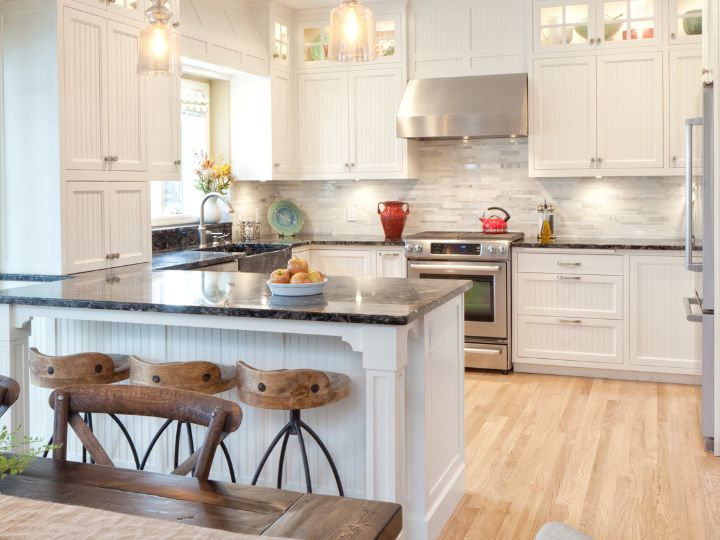
Explore Financing Options for Your Grand Rapids Basement Project

A finished basement can provide additional living space, boost your home’s value, and give you the flexibility to create a custom room for your family’s unique needs. Whether you want to transform your basement into a cozy living area, a home gym, or even a rental unit, the possibilities are endless. However, the cost of a basement renovation can be a significant financial commitment. That’s why finding the right financing option is critical to ensure that your dream project becomes a reality without causing undue financial strain.
In this guide, we’ll explore several financing options available to homeowners in Grand Rapids, helping you make an informed decision about how to fund your basement project.
Key Takeaways:
- A variety of financing options are available for Grand Rapids homeowners looking to renovate their basements, including personal loans, home equity loans, and contractor financing.
- Local government grants and incentive programs may provide additional support, especially for energy-efficient upgrades.
- Selecting the right financing option depends on factors like your credit score, loan terms, and overall project cost.
- With the right financing strategy, a basement remodel can boost your home’s value and offer an excellent return on investment.
Understanding the Cost of a Basement Project
Before diving into financing options, it’s essential to understand the potential costs involved in a basement remodeling project. In Grand Rapids, the average basement finishing project can range from $20,000 to $75,000 depending on factors such as square footage, the complexity of the design, and the materials used.
Some common costs associated with basement renovations include:
- Framing and drywall installation
- Plumbing and electrical work
- Flooring and ceiling installation
- Insulation and waterproofing
- Heating, ventilation, and air conditioning (HVAC)
- Custom features like a bathroom, bar, or entertainment area
Understanding these costs will help you determine how much financing you might need and which option is best for your specific project.
Financing Options for Your Grand Rapids Basement Project
Let’s explore the different financing options available for your basement renovation in Grand Rapids. Each option has its own benefits and considerations, so be sure to evaluate them based on your financial situation and project needs.
1. Home Equity Loan
A home equity loan, also known as a second mortgage, allows you to borrow against the equity you’ve built in your home. The loan is disbursed as a lump sum, which can be ideal for covering one-time expenses like a basement remodel.
- Pros: Lower interest rates compared to personal loans or credit cards, tax-deductible interest (in some cases), and fixed monthly payments.
- Cons: Your home serves as collateral, so failure to repay the loan could lead to foreclosure.
Home equity loans are a popular choice among Grand Rapids homeowners because of their favorable terms and stability. However, to qualify, you must have significant equity built up in your home, usually around 15% to 20%.
2. Home Equity Line of Credit (HELOC)
A HELOC is similar to a home equity loan, but instead of receiving a lump sum, you’re given access to a revolving line of credit that you can draw from as needed. This can be especially useful if your basement project is completed in phases.
- Pros: Flexibility to borrow as needed, typically lower interest rates, and the ability to pay interest only on what you use.
- Cons: Variable interest rates can increase over time, and your home is still used as collateral.
For homeowners who prefer flexibility in financing, a HELOC may be a better choice. Just be mindful of fluctuating interest rates, which can impact long-term repayment costs.
3. Personal Loan
Personal loans are an option for homeowners who don’t want to use their home as collateral. These unsecured loans are typically easier to qualify for than home equity loans, and the funds can be used for any purpose, including basement renovations.
- Pros: No collateral required, fixed interest rates, and fast approval.
- Cons: Higher interest rates than secured loans, shorter repayment terms, and stricter credit requirements.
If you have a solid credit score and want to avoid putting your home at risk, a personal loan could provide the funds needed to complete your project. However, due to higher interest rates, it’s important to budget carefully to ensure you can manage the monthly payments.
4. Contractor Financing
Many remodeling contractors in Grand Rapids offer in-house financing options to help homeowners afford large projects like basement renovations. These programs can be convenient because they often come with promotional offers, such as 0% interest for a certain period.
- Pros: Convenient, promotional interest rates, and often requires minimal paperwork.
- Cons: Limited loan amounts, higher interest rates after promotional periods, and may require you to work with specific contractors.
Contractor financing can be a convenient solution if you’re working with a trusted builder who offers favorable terms. Just be sure to review the fine print, especially if there’s a chance that high-interest rates will kick in after an initial promotional period.

5. Government Grants and Incentive Programs
In some cases, Grand Rapids homeowners may be eligible for government grants or incentive programs to help fund their basement renovation. These programs often target energy-efficient upgrades, accessibility improvements, or projects that contribute to community development.
For example, Michigan’s Homeowner Assistance Fund provides financial support to eligible homeowners facing challenges in maintaining their properties, including home repairs and renovations. Additionally, there may be local or state programs that encourage the use of energy-efficient systems in your remodel.
- Pros: Free or low-cost funding, supports sustainability and home improvement goals.
- Cons: Competitive application processes, limited eligibility, and restricted funding amounts.
If your project qualifies for a grant or incentive program, you could significantly reduce the financial burden of your renovation. However, these programs often have strict eligibility requirements, so it’s important to do your research.
6. Credit Cards
While not the most recommended option for financing a large renovation project, credit cards can be used to cover smaller expenses or fill gaps in your funding. Some credit cards offer 0% APR promotional periods, which can be helpful if you can pay off the balance within the promotional timeframe.
- Pros: Quick access to funds, no collateral required, and rewards or cashback benefits.
- Cons: High interest rates after the promotional period, potential for accumulating debt.
Credit cards are best used as a supplementary option for smaller purchases rather than the primary source of funding for a large renovation. Always be cautious about the risk of high-interest debt, especially if the balance isn’t paid off quickly.
Choosing the Right Financing Option
Choosing the best financing option for your Grand Rapids basement project depends on several factors, including your financial situation, project timeline, and long-term goals. Here are a few tips to help you decide:
- Assess Your Credit Score: Your credit score will affect your eligibility and interest rates for most loan options. A higher score can help you secure better terms.
- Understand Your Budget: Determine the total cost of your project and compare it to the loan amounts you’re eligible for. Don’t forget to account for unexpected costs.
- Evaluate Loan Terms: Compare interest rates, repayment terms, and any fees associated with each financing option. Be sure to choose a loan that fits your budget and timeline.
- Consider the Project Scope: If your basement renovation will be completed in phases, a HELOC might be the most flexible option. If you prefer a lump sum, a home equity loan or personal loan may be better.
- Consult with Financial Experts: Talk to your contractor, bank, or a financial advisor to get personalized advice about the best financing options for your situation.
FAQs
What is the average cost of a basement renovation in Grand Rapids?
The cost of a basement renovation in Grand Rapids typically ranges from $20,000 to $75,000, depending on factors like the size of the basement, the complexity of the design, and the materials used.
Can I use a personal loan to finance my basement remodel?
Yes, a personal loan is a viable option for financing a basement renovation, especially if you prefer an unsecured loan that doesn’t require your home as collateral. However, personal loans often come with higher interest rates than home equity loans.
How does a HELOC work for home renovations?
A Home Equity Line of Credit (HELOC) gives you access to a revolving line of credit based on the equity you’ve built in your home. You can withdraw funds as needed, making it ideal for home renovation projects completed in phases.
Are there any government grants available for basement renovations in Grand Rapids?
Yes, there are potential grants and incentive programs available, especially for energy-efficient upgrades or accessibility improvements. Check with local and state programs to see if you qualify.
What should I consider before applying for contractor financing?
When opting for contractor financing, consider the loan terms, interest rates, and any promotional offers. Make sure to understand the conditions after the promotional period ends, as interest rates can increase.
By carefully evaluating these financing options and considering your project needs, you can turn your basement into a functional, attractive space while staying within your financial comfort zone.
Latest Blogs
DON'T JUST DREAM ABOUT IT, MAKE IT YOUR REALITY.
Book a free 15-minute call to discuss your vision and needs. Let’s bring your dream space to life!

.svg)
.svg)


